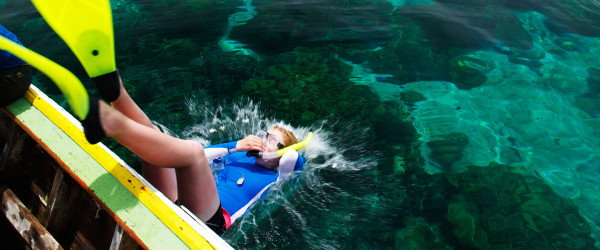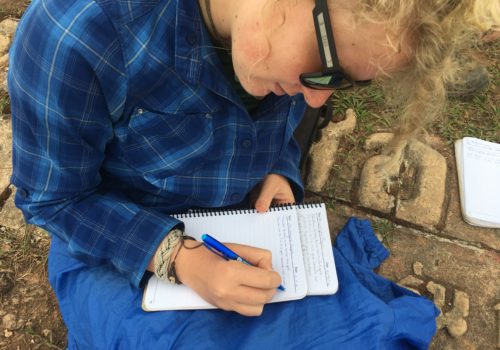The capstone to a semester of hands-on-learning at ISDSI is our Oceans course, diving the reefs of the Andaman and paddling through the mangroves.
One of our students was on-hand in the Andaman when it suffered a huge bleaching event. Corals are slowly recovering, some faster than others. As the oceans continue to warm and become more acidic, we expect these events to increase in frequency, potentially wiping corals out world-wide.
Some positive news from coral research following a long-term study are finding that some corals are able to bounce back faster than expected. Part of this requires that they are not stressed in other ways, and are in very favorable places with high diversity and low pressure on the reefs. From the BBC: The Corals That Came Back From the Dead:
James Gilmour, a coral ecologist at the Australian Institute of Marine Science, in Crawley, Western Australia, also watched his research site, Scott Reef, in the Kimberly region of northwestern Australia, make a robust recovery from the 1998 heatwave. The site has since survived a category-five cyclone and further bleaching events in 2010 and 2011 (see video below of a bleached Scott Reef credit: J. Gilmour).
“We are learning rapidly about coral reefs that there is a lot that we didn’t know,” Gilmour says.
Mumby concurs. “It makes us realise that some corals have a number of strategies to cope with stress that we don’t understand very well,” he says. “That is good news and we now need to understand exactly how they do it.”
This is great news, and a small piece of hopeful news in a field which is usually filled with further bad news about the future of our oceans.




